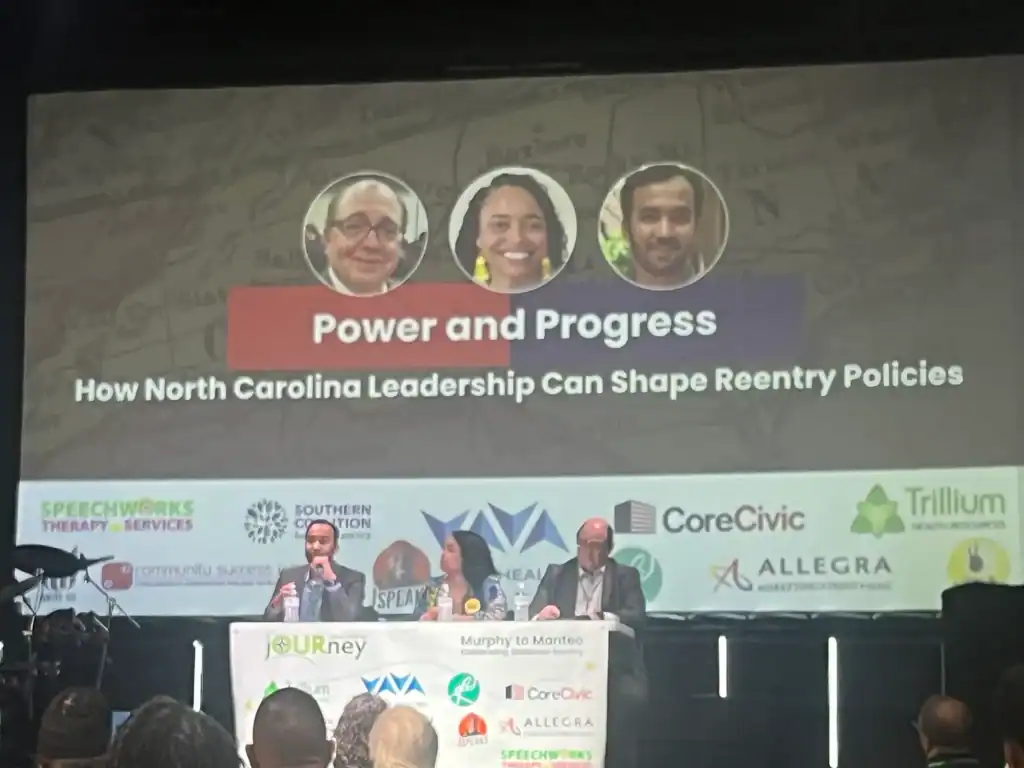Journey’s Third Year Celebration
On February 22, I witnessed something extraordinary at Journey’s third-year celebration—a gathering that transcended typical nonprofit events and revealed the profound impact of authentic criminal justice reform.
Journey, born from the vision of a formerly incarcerated person, opened their presentation with North Carolina’s state motto: “Esse Quam Videri” (To be, rather than to seem). By day’s end, these words had transformed from Latin inscription to lived reality before my eyes.
This groundbreaking re-entry program, which now reaches all 100 North Carolina counties, begins its work at a critical moment—an individual’s first day of freedom. Each participant receives a “box” upon release, a carefully curated collection of essentials that most of us take for granted but represent a lifeline when starting with nothing.
That same sense of essential value permeated the room. Everyone present shared a mission beyond rhetoric—to genuinely empower returning citizens with meaningful second chances. This wasn’t a crowd discussing theoretical change but a coalition actively dismantling barriers.
The dialogue between formerly incarcerated individuals and authority figures struck me most. Their exchanges carried the unmistakable weight of lived experience—nuanced observations about what works, what fails, and why—creating a level of discourse rarely found in criminal justice conversations.
Among many powerful moments, one federal prosecutor named Rob delivered words that stopped me cold: “I am no different than you. I just didn’t get caught.” Referencing youthful indiscretions, his raw honesty cut through every pretense in the room. His humility and recognition of our shared humanity transformed how I view justice itself—not merely as punishment, but as a recognition of our common fallibility.
Esse Quam Videri—to be rather than to seem—wasn’t just projected on a screen. It manifested in 130 people who embodied authentic compassion rather than performing it. Their commitments weren’t symbolic gestures but tangible actions. The relationships weren’t professional networks but genuine human connections.
They weren’t trying to appear transformative. They simply were.
Diane is the Founder of Impartial. Through her own unfortunate prosecution, Diane learned firsthand what the US criminal justice system is. She shares information, stories and possibilities about what our criminal justice is and could be.
Diane Wells

